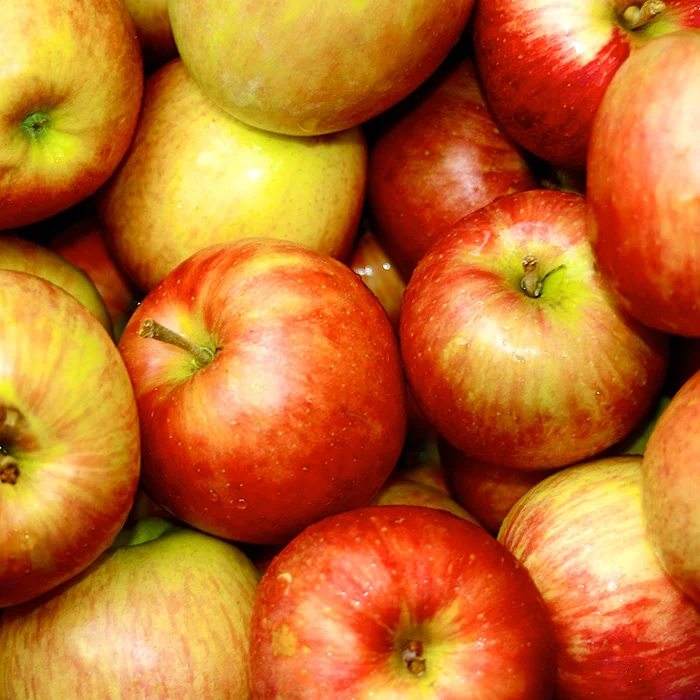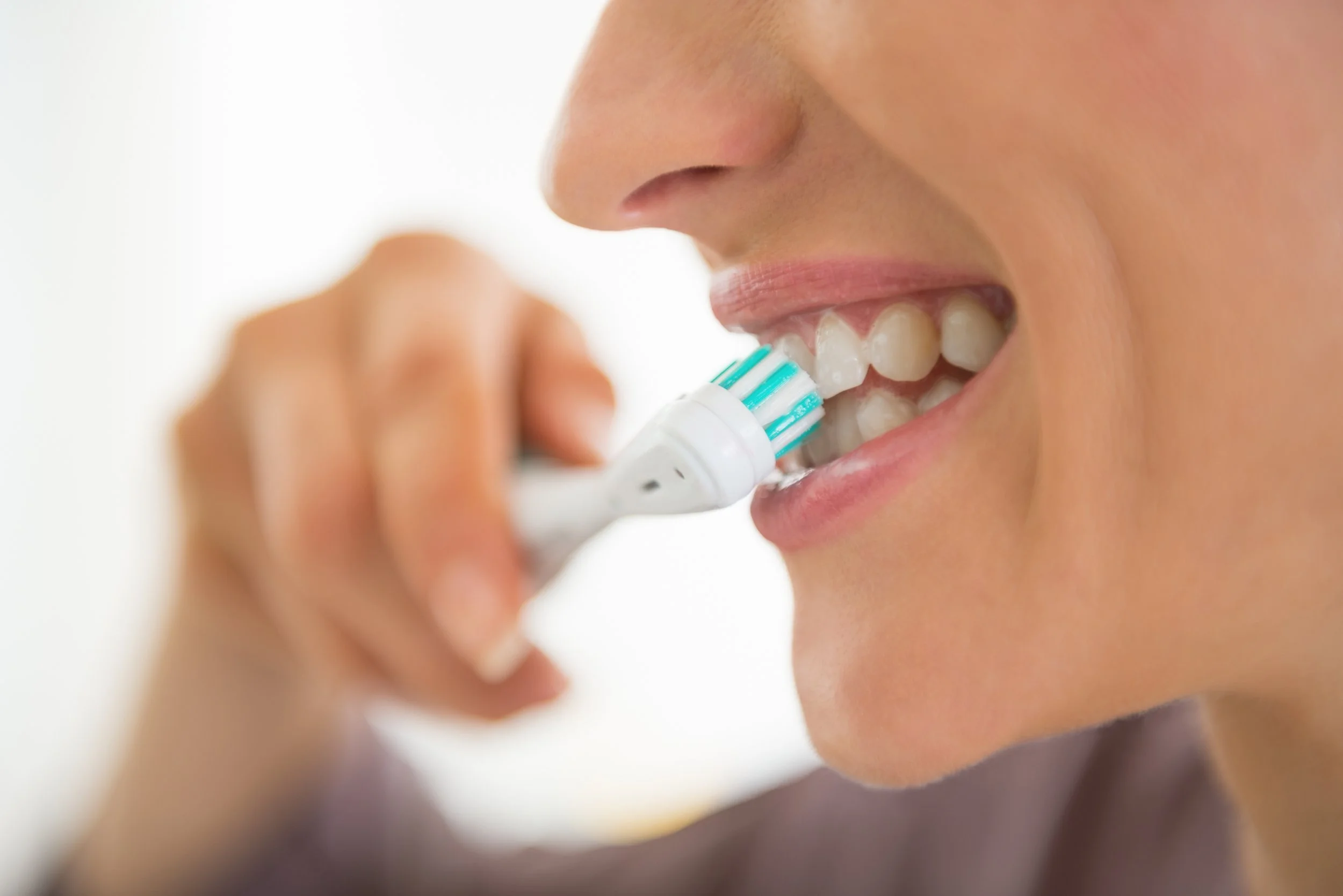HAVE YOU EVER woken up with your mouth feeling like a barren desert? Then you’ve probably experienced dry mouth, although it can be even more severe, making it difficult to speak or even eat. Dry mouth affects a tenth of the population, but why is it such a problem, why does it happen, and what can we do about it?
Easy Ways To Improve Your Dental Health
Mouth-Breathing: Breaking Unhealthy Habits
The Effects Of Thumb Sucking And Pacifires
BEING A PARENT, though wonderfully rewarding, can also be stressful and full of uncertainties, especially when it’s your first child and everything is new and overwhelming. Our practice might not be able to take away all of the uncertainties, but we can certainly help you out when it comes to pacifiers and thumb sucking and their effects on your child’s dental health.
Protecting Your Smile From White Spots
WHITE SPOTS APPEAR on our teeth for a variety of reasons. Although not all of them are harmful to our oral health, they still prevent our smile from truly shining through.
Today we want to share with you some of the most common reasons these white spots appear, and what treatment is available to remove them and give you a bright, beautiful smile.
Your Child's Baby Teeth Timeline
GROWING AND LOSING BABY TEETH are major milestones in your child’s development. If you’re a first-time parent, you probably have a lot of questions about what to expect, so let’s take a look at how baby teeth develop and when you can expect to start seeing them, as well as when adult teeth will start replacing them.
Vacation Tips To Keep Your Smile Healthy!
SUMMER IS FINALLY HERE and you know what that means–family vacations, impromptu getaways and fun trips! Just like you, we couldn’t be more excited. As dental professionals, however, we want to make sure that when you leave on vacation, you don’t leave your oral hygiene behind. Follow these tips to keep your teeth healthy and bright, even when you’re traveling!
The Daily Grind of Bruxism
MOST PEOPLE GRIND OR CLENCH their teeth briefly when annoyed or in a tense situation. That level of teeth-grinding isn’t really something to worry about. It’s when you do it far more frequently, often without even realizing it (you might even do it in your sleep!), that it can potentially become a serious problem. The medical term for this kind of teeth-grinding is bruxism.
Build Mouth-Healthy Habits For Your Kids
AS PARENTS OF SMALL CHILDREN, you probably feel like you barely have time to take proper care of your own teeth most days, so wrestling your kids into the bathroom to brush their teeth too can seem close to impossible. Parenting will always have its struggles, but this is one we can help you out with.
The Way You Eat Fruits Matters For Your Teeth
FRUIT IS AN ESSENTIAL element of a well-balanced, healthy diet. It is an excellent source of vitamins, minerals and antioxidants, and eating it on a regular basis helps boost your immune system and reduces your risk of illness and chronic disease. There are a lot of ways people get their fruit, however, and when it comes to your teeth, some ways are worse than others!
Want To Get Rid of Bad Breath?
WE ALL KNOW THAT FEELING… you wake up in the morning to sun shining, birds chirping and happily lean over to your significant other to say hello! Instead you are greeted by the horrible smell of morning breath. Or maybe you run into friends after work and suddenly become conscious of that bad taste in your mouth.We’ve all been there! Unfortunately, bouts of halitosis, or bad breath, are pretty much inevitable. Today we’re going to explain why that is, what causes that nasty smell and what you can do to keep bad breath at bay!
Our Favorite Smile-Friendly Snacks
EVERYONE KNOWS that snack time is one of the best times of the day! Getting a tasty treat in the middle of the workday or grabbing a snack after school can be just the pick-me-up you need to tackle the rest of your day with a smile.
But before you reach for the chips or chocolates, we have a few smile-friendly suggestions! Today we want to share our team’s favorite snacks that protect your teeth and benefit your smile.
What To Expect At Your Next Dental Checkup
Oral Health & Weight Loss Go Hand In Hand
A HEALTHY LIFESTYLE is the best prevention for illness and chronic disease. It can also be just as effective as any medicine a doctor could prescribe. Whether you’re trying to lose weight, or simply live more healthily, the good choices you’re making not only do wonders for your body and overall health, but they also have a beneficial impact on your smile!
4 Fun Apps To Improve Your Oral Health
The Battle Inside Our Mouths
EVERY DAY INSIDE YOUR MOUTH, there is an epic battle of good versus evil being waged over the ultimate prize: your teeth! And guess what… only YOU can protect them from the destructive forces that seek to harm them.
The Good Guys And The Bad Guys
Because tooth enamel is the hardest substance in the human body (it is made up of mostly minerals), we automatically think of it as a tough shield that nothing can get through. In reality, tooth enamel is porous!
When tooth enamel loses minerals, teeth are weakened and more susceptible to decay–we call this demineralization. If tooth enamel is demineralized enough, a cavity will form. But here’s the good news! The enamel can also be strengthened by receiving nutrients and minerals in a process we call remineralization. This constant dynamic of tooth enamel losing and gaining minerals is the battle that goes on inside your mouth every day!
So, who are the bad guys? Although there are a lot of good bacteria in our mouths, there’s also the cavity-causing bacteria found in plaque. They feed on sugar and other carbohydrates and produce harmful acids in the process. These acid attacks demineralize, or break down tooth enamel, and if left unchecked, can lead to tooth decay.
Check out the video below to learn a little more about plaque
But all is not lost! You have a secret weapon in your ammunition… and that’s saliva! Not only does saliva wash out food debris and neutralize harmful acids, but minerals in saliva like fluoride, calcium and phosphate can be deposited back into tooth enamel, strengthening and defending it against bad bacteria. That’s why we call saliva the unsung hero of oral health–it works around the clock to protect our smiles and keep our teeth healthy and strong!
Whose Side Are You On?
This “battle” isn’t something that just goes on in your mouth without you having any say in it. You can promote tooth enamel remineralization and help your saliva fight off harmful bacteria by practicing mouth-healthy habits. In the end, you are the ultimate protector of your teeth!
The first thing you can do to defend your teeth from cavity-causing bacteria is eat a nutritious diet. Sugary drinks and treats, crackers, bread and processed foods are just what these bad bacteria love and eating these types of foods can lead to tooth enamel demineralization. On the other hand, foods like cheese, eggs, apples, celery, carrots, dark leafy greens and wild-caught fish promote enamel remineralization. So the next time you open up the fridge or pantry, make the mouth-healthy choice!
Another way to prevent demineralization is to brush with fluoride toothpaste! Where plaque breaks down the tooth, fluoride builds it up. This cavity-fighting mineral protects teeth from bacteria by remineralizing tooth enamel and reducing plaque bacteria’s ability to even produce acid in the first place!
You Are Responsible For Your Oral Health
The battle to keep teeth strong and healthy depends on you! By eating a well-balanced diet and maintaining good oral hygiene, you can have a lifetime of healthy smiles. Keep up the good work, soldier. You’re doing great!
We’re grateful for our awesome patients!
The content on this blog is not intended to be a substitute for professional medical advice, diagnosis, or treatment. Always seek the advice of qualified health providers with questions you may have regarding medical conditions.
Common Misconception About Gum Disease
WE BELIEVE the more educated our patients are about dental health issues, the better they’ll be able to prevent them. We often warn of periodontal disease and the detrimental effects it has on the mouth and body. But there are also many common misconceptions about gum disease. To help you better understand it, we’ve decided to bust some myths today!
Myth #1: Bleeding Gums Are Normal
This is probably one of the most perpetuated dental health myths. The truth is, bleeding gums are the first sign of gum disease. Gums swell, bleed and become tender when plaque accumulates on the teeth and around the gum line. Keep your gums healthy by removing plaque and food debris with daily brushing and flossing.
Myth #2: People Get Gum Disease Because They Don’t Clean Their Teeth
While poor oral hygiene definitely contributes to the development of gum disease, there can be many other factors involved. Tobacco use, stress, a bad diet, genetics, and certain illnesses such as diabetes can all increase your risk of developing gum disease. And as we’ve explained before, even being pregnant makes you more susceptible!
We also don’t want our patients to think that if they are cavity-free they couldn’t possibly have gum disease. Gum disease is painless in its beginning stages and many people don’t know they have it. That’s why proper oral hygiene and twice-yearly visits to your dentist are essential for your oral health, even if you don’t have a cavity!
Myth #3: Gum Disease Is Irreversible
What we really want our patients to understand is that gum disease is reversible in its earliest stage: gingivitis! The earlier gingivitis is caught, the easier it is to eliminate it before it advances to full-blown periodontitis. Finding out you have gingivitis can be worrisome but here’s the good news: good oral hygiene habits and professional cleanings can, in most cases, rid you of gingivitis and stop gum disease in its tracks.
To learn more about periodontal screenings, check out the video below!
Myth #4: Only Adults Can Get Gum Disease
Gum disease is much more prevalent in adults, but that doesn’t mean that our children are invulnerable. Children can be more susceptible to gum disease if they are genetically predisposed or have certain illnesses such as autoimmune disorders or diabetes. Even puberty, with all its hormonal changes, can put your child more at risk. Their best defense against any dental disease–gum disease and tooth decay included–is to take care of their teeth at home and visit the dentist on a regular basis.
Myth #5: Everyone With Diabetes Has Gum Disease
If you have diabetes, developing gum disease is not inevitable, although you are certainly at a higher risk. Now more than ever you’ll need a good relationship with and frequent visits to your dentist. A rigorous oral hygiene regimen as well as frequent cleanings can help stave off the onset of gum disease. Proper blood glucose control can also help you lower your risk.
Gum Disease Myths… Busted!
Now that you know more about gum disease, keep up the good work avoiding it! Let us know if you have any questions in the comments below or on our Facebook page. Thanks for reading!
As always, thank you for supporting our practice.
The content on this blog is not intended to be a substitute for professional medical advice, diagnosis, or treatment. Always seek the advice of qualified health providers with questions you may have regarding medical conditions.
Seasonal Allergies? Take Care of your Smile.
SPRING IS ON THE HORIZON and we couldn’t be more excited! Chirping birds, blooming flowers, and warmer weather are just a few of the things we look forward to when spring comes around. We have to admit though, there is one thing about the season that’s not particularly appealing, and that’s allergies.
Be Aware Of These Dental Side Effects During Allergy Season
Many of you have experienced it, red, itchy and watery eyes and the constant sneezing and congestion. The effects of seasonal allergies can go even further, however, and may even affect your oral health! Here are some mouth-related symptoms to be on the lookout for when seasonal allergies strike.
Tooth Pain
When your body reacts to allergens in the air, you often end up with congested sinuses. Sinus pressure in the maxillary sinuses can sometimes cause the upper molars to ache. Treating your allergies and the congestion should relieve tooth pain. If the pain persists, however, make an appointment with your dentist. It’s important to make sure any aching teeth aren’t the result of tooth decay.
Bad Breath
All that mucus your body is creating can also be bad news for your breath. When you’re congested, mucus from the sinuses leaks into the back of the throat–we call this “post-nasal drip.” Not only can post-nasal drip lead to a sore throat, it can also be the cause of persistent bad breath.
Dry Mouth
Many of you will reach for antihistamines to keep your allergies under control this spring. As helpful as they are, they can often lead to an unpleasant side effect: dry mouth. Saliva is our number one defense against cavity-causing bacteria, so when your mouth is dry, you have a higher risk of developing tooth decay.
Protect Your Mouth This Spring
We want your mouth to stay healthy, even during allergy season. Here are some helpful tips to help you protect your mouth this spring:
- Continue to practice good oral hygiene. Brush at least twice a day, and floss on a daily basis!
- Take allergy medication as recommended by your physician, but remember to drink plenty of water to compensate for dry mouth.
- Try gargling with salt water to help with congestion. Dissolve half a teaspoon of salt in a full glass of warm water and gargle for a few seconds before spitting it out.
To get a more in-depth look at what causes those pesky allergies and what you can do to avoid them, check out the video below!
The content on this blog is not intended to be a substitute for professional medical advice, diagnosis, or treatment. Always seek the advice of qualified health providers with questions you may have regarding medical conditions.
How Pregnancy Affects Your Oral Health
PREGNANCY AFFECTS NEARLY every aspect of your life–your lifestyle, your diet, your health, and much more! Your mouth is no exception to the changes your body may experience during pregnancy. During this special time, you’ll need to pay particular attention to your oral health for both your sake and your growing baby’s.
You May Be More Prone To Dental Problems
One of the main concerns we have for expectant mothers is what we call pregnancy gingivitis. Around 40 percent of pregnant women have some form of gum disease–gingivitis being the first stage. Because of raised hormone levels during pregnancy, you may be more sensitive to dental plaque than before, causing your gums to be sensitive, swell and bleed. Studies have linked mothers with gum disease to premature delivery and lower birth weights.
In about five percent of pregnancies, women may experience lumps along the gum line and in between teeth. Luckily, these swellings are harmless and usually go away after baby is born. Even though these are known as “pregnancy tumors,” there is no need to be alarmed as they are not cancerous and can be easily removed by your dentist.
Morning sickness can also cause dental woes for expectant mothers. Pregnant women often complain of sensitive gag reflexes and even routine tasks such as brushing and flossing can induce vomiting. Exposure to acid, especially strong stomach acid, can lead to tooth enamel erosion, decay and sensitivity. After vomiting, we recommend rinsing your mouth out with a teaspoon of baking soda mixed with water to neutralize stomach acid and prevent any damage to teeth.
Protect Your Teeth During Pregnancy
To protect your teeth during pregnancy, one of your first stops should be the dentist’s office. If you are planning on getting pregnant, talk to your dentist beforehand so you can fix any dental issues before conceiving. And when you do find out that you are pregnant, don’t just go to your OB/GYN, make your way to the dentist’s as well!
Routine cleanings and checkups are safe during pregnancy, and as you may be more susceptible to certain dental problems at this time, getting frequent cleanings is a must. You will also need to be diligent about your oral hygiene at home. As always, brush at least twice a day and floss daily.
Another thing to remember is that your diet matters. Did you know that baby’s teeth start developing between the third and sixth months of pregnancy? You will need plenty of nutrients–specifically vitamins A, C and D, protein, calcium and phosphorous–to make sure their teeth, gums and bones develop properly.
Mothers, We Are Here For You
Pregnancy can bring with it a lot of change and responsibility, but we want our patients to know that we are here for you. We want to make sure that your dental health is taken care of so you can focus on preparing for your little one to come into the world. So whether you’re planning on becoming pregnant or already are, we’d love to see you in our office!
Our patients mean the world to us!
The content on this blog is not intended to be a substitute for professional medical advice, diagnosis, or treatment. Always seek the advice of qualified health providers with questions you may have regarding medical conditions.
3 Tips to Keep Teeth Clean Between Meals
WE UNDERSTAND HOW BUSY life can get–between work, school, sports, and having a social and family life, it can be hard to find time for your dental health. Because we know how precious your time is, we’ve decided to compile a list of quick, easy tips to keep your teeth clean in between meals and on the go!































